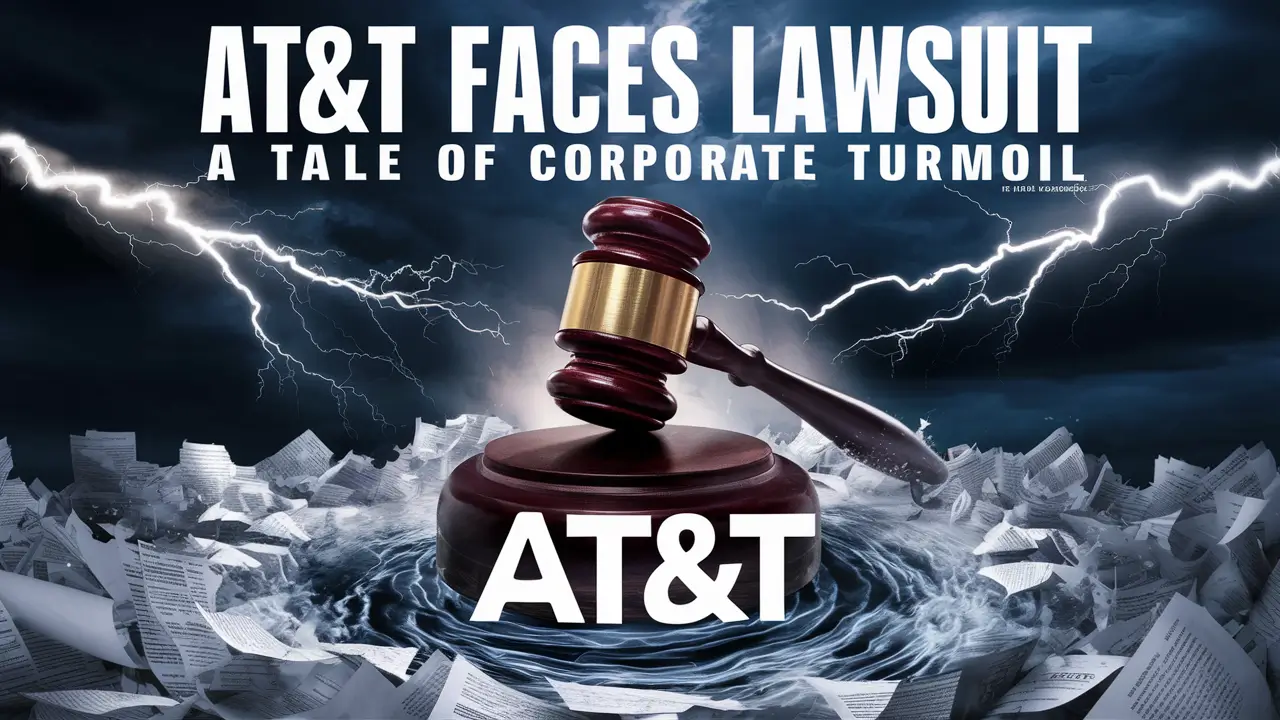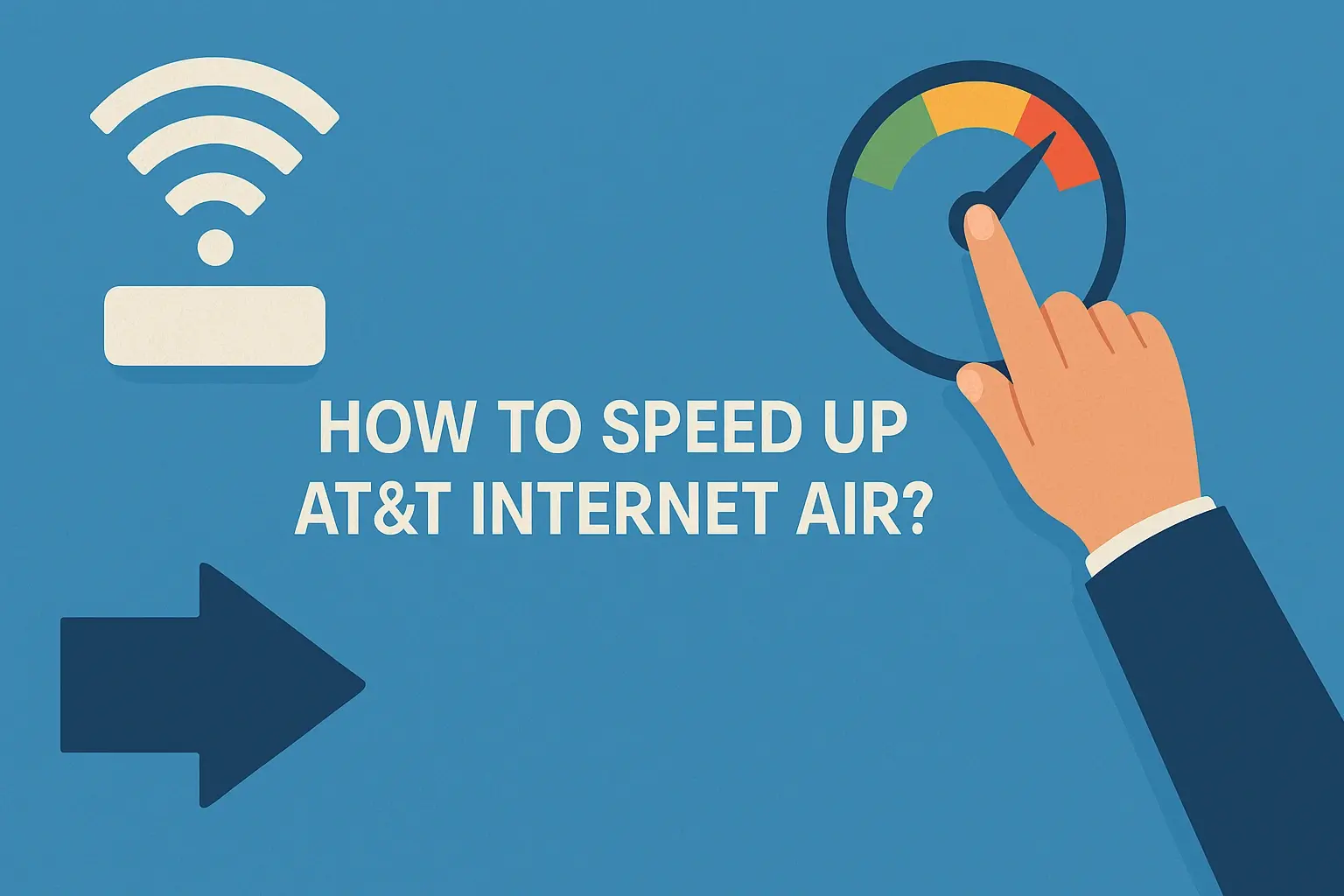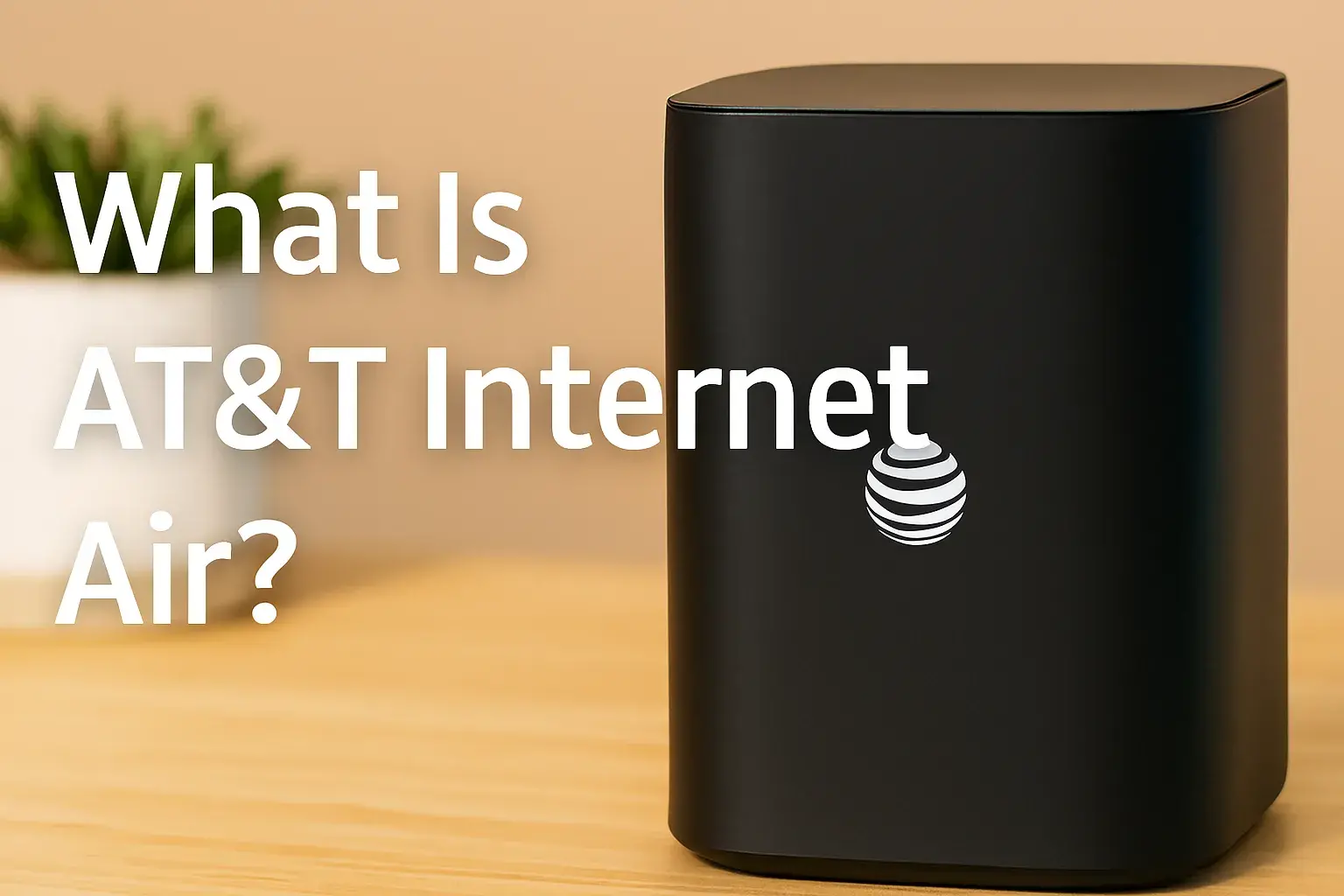Why did AT&T get sued?

AT&T, a titan of telecommunications, faces scrutiny and legal challenges for various reasons, often stemming from consumer complaints, regulatory disputes, and alleged business practices. Understanding these lawsuits provides insight into the company's operational landscape and consumer rights.
Understanding the Landscape of AT&T Lawsuits
The question "Why did AT&T get sued?" is multifaceted, reflecting the company's extensive reach and the complex regulatory and consumer environments in which it operates. As a leading provider of mobile, broadband, and entertainment services, AT&T has been involved in numerous legal proceedings. These lawsuits often arise from disputes over billing practices, service quality, alleged deceptive advertising, data privacy concerns, and broader regulatory issues related to market competition and spectrum management. Examining these legal challenges provides a comprehensive view of the company's operational history and the evolving landscape of consumer protection in the telecommunications sector.
Historical Context: A Legacy of Legal Battles
AT&T's history is intertwined with significant legal and regulatory milestones. Emerging from the breakup of the Bell System in 1984, the company has undergone numerous transformations, mergers, and acquisitions. Each phase has brought its own set of legal challenges. Early antitrust suits, for instance, were instrumental in shaping the competitive landscape of the telecommunications industry. More recently, the company's expansion into content and media, through acquisitions like Time Warner, has introduced new legal complexities, particularly concerning antitrust reviews and potential market impacts. Understanding this historical trajectory is crucial for contextualizing the reasons behind contemporary lawsuits against AT&T.
Antitrust and Divestiture Era
The landmark antitrust case brought by the U.S. Department of Justice against AT&T in the 1970s led to the divestiture of its local operating companies, forming the "Baby Bells." This monumental legal action was a direct response to concerns about AT&T's monopolistic control over the telephone network. While this era predates the modern AT&T, the legacy of these antitrust actions continues to inform regulatory oversight and public perception of the company's market power.
Deregulation and Consolidation
Following deregulation, the telecommunications industry experienced a period of intense consolidation. AT&T, in its various forms, has been both a driver and a participant in this trend. Mergers and acquisitions, such as the acquisition of BellSouth, have often been subject to regulatory approval and, in some cases, legal challenges from competitors or consumer advocacy groups concerned about reduced competition or potential price increases. These actions frequently involve lengthy reviews by antitrust authorities, such as the Federal Trade Commission (FTC) and the Department of Justice (DOJ), to ensure that such consolidations do not harm consumers or stifle innovation.
Consumer-Centric Lawsuits: Billing, Service, and Deception
A significant portion of lawsuits filed against AT&T involve direct disputes with its vast customer base. These cases often highlight issues related to the clarity and fairness of billing, the reliability of services provided, and the perceived honesty of the company's marketing and sales tactics. These consumer-focused litigations are critical indicators of customer satisfaction and the effectiveness of AT&T's customer service and operational integrity.
Billing Disputes and Hidden Fees
One of the most persistent areas of litigation involves billing disputes. Customers frequently allege that AT&T imposes unauthorized charges, fails to clearly disclose fees, or misapplies promotional credits. These claims can escalate into class-action lawsuits when a large number of customers experience similar billing discrepancies. For example, lawsuits have been filed alleging that AT&T charged customers for services they did not authorize or subscribe to, or that the advertised prices did not reflect the final amount billed due to undisclosed surcharges and fees.
A common theme in these disputes is the complexity of billing statements. Many customers find it difficult to decipher all the charges, leading to a lack of transparency. This opacity can be exploited, intentionally or unintentionally, to add charges that customers may not notice or understand. Lawsuits often seek to recover these allegedly overcharged amounts, along with damages and legal fees, for affected consumers.
Example: In 2023, AT&T faced a class-action lawsuit alleging that it systematically overcharged customers for data usage by miscalculating data allowances and applying overage fees unfairly. The suit claimed that AT&T's billing systems were designed in a way that led to erroneous charges, impacting thousands of customers.
Service Quality and Outages
Customers expect reliable internet, mobile, and television services. When these services are consistently poor or experience frequent, prolonged outages, it can lead to legal action. Lawsuits in this category often allege breach of contract, as customers argue that AT&T failed to deliver the service quality it promised in its service agreements. This can include allegations of consistently slow internet speeds, dropped calls, or a lack of network coverage in advertised service areas.
The nature of these claims can be challenging to litigate, as service quality can be affected by numerous factors, including network congestion, local infrastructure issues, and individual customer equipment. However, when systemic failures are evident, or when AT&T's marketing exaggerates service capabilities, legal challenges become more viable. Class-action lawsuits are common, seeking compensation for customers who have been deprived of the service they paid for.
Example: In 2024, a lawsuit was filed against AT&T alleging that its fixed wireless internet service in rural areas consistently failed to meet advertised speeds, rendering it unusable for essential tasks like remote work and online education. The plaintiffs argued that AT&T knowingly marketed a service that was inadequate for the needs of these communities.
Misleading Advertising and Deceptive Practices
AT&T, like many large corporations, has faced lawsuits alleging misleading advertising and deceptive sales practices. These claims can range from exaggerating the benefits of a product or service to failing to disclose crucial terms and conditions. This often involves marketing campaigns that promise specific speeds, coverage, or features that are not consistently delivered in practice.
Consumer protection laws are designed to prevent such practices. Lawsuits in this area often cite violations of state and federal consumer protection statutes. The core argument is that AT&T's advertising created a false impression, inducing consumers to sign up for services they might not have otherwise chosen. This can include "bait-and-switch" tactics, undisclosed fees, or misleading claims about network superiority.
Example: A prominent lawsuit in 2023 involved allegations that AT&T's advertising for its "unlimited" mobile data plans was misleading. Critics argued that these plans actually included significant data throttling after a certain usage threshold, effectively limiting unlimited access, which was not clearly communicated to consumers.
Data Privacy and Security Breaches
In the digital age, data privacy and security are paramount. AT&T has faced significant legal challenges related to data breaches and the handling of customer information. When customer data is compromised due to inadequate security measures, or when data is used or shared in ways that violate privacy expectations or regulations, lawsuits can follow. These can include claims for negligence in protecting sensitive information, breach of contract, and violations of privacy laws.
The scale of these breaches can be enormous, affecting millions of customers. Lawsuits often seek damages for identity theft, financial losses, and the emotional distress caused by the exposure of personal data. Regulatory bodies, such as the Federal Communications Commission (FCC) and the Federal Trade Commission (FTC), also investigate such incidents and can impose substantial fines.
Example: In late 2023 and early 2024, AT&T disclosed several data breaches affecting millions of customers. One significant incident involved the exposure of personal information of approximately 73 million current and former customers due to unauthorized access to AT&T systems. This led to multiple class-action lawsuits alleging that AT&T failed to implement adequate security measures to protect customer data.
Regulatory and Antitrust Issues
Beyond individual consumer complaints, AT&T frequently finds itself entangled in broader regulatory and antitrust disputes. These often involve government agencies and concern the company's market power, its acquisition of essential resources like radio spectrum, and the competitive landscape of the telecommunications industry. These legal battles shape the future of competition and innovation in the sector.
Monopoly Concerns and Market Dominance
Despite the breakup of the original AT&T, concerns about market dominance and potential monopolistic practices persist, particularly in specific markets or service areas. Lawsuits and regulatory actions may arise if AT&T is perceived to be leveraging its market power to stifle competition, engage in anti-competitive pricing, or limit consumer choice. This is especially relevant in areas where AT&T is the primary or sole provider of certain services, such as high-speed broadband in some rural regions.
Antitrust laws are designed to prevent companies from abusing their dominant market positions. When AT&T is accused of such abuses, it can face investigations by the DOJ or FTC, leading to potential lawsuits seeking to break up certain business units, impose operational restrictions, or mandate specific competitive practices. The ongoing debate about net neutrality and the power of internet service providers (ISPs) also falls under this umbrella, as regulators grapple with ensuring fair access to the internet.
Spectrum Acquisition and Usage
Radio spectrum is a finite and valuable resource essential for wireless communication. AT&T, along with other major carriers, invests billions of dollars in acquiring spectrum licenses from the government. Lawsuits and regulatory disputes can arise from the methods of spectrum acquisition, allegations of hoarding spectrum, or the manner in which it is utilized. Competitors or consumer groups might challenge spectrum auctions or allege that AT&T is not deploying its spectrum efficiently, thereby hindering network expansion or competition.
The FCC plays a crucial role in managing spectrum. Decisions made by the FCC regarding spectrum allocation, auction rules, and usage requirements can be subject to legal challenges. AT&T's strategic decisions in acquiring and deploying spectrum are constantly under scrutiny to ensure fair play and optimal use of this public resource.
Merger and Acquisition Challenges
AT&T's history is marked by significant mergers and acquisitions, such as its acquisition of DirecTV and, more controversially, Time Warner. These large-scale transactions are subject to intense regulatory review by antitrust authorities. Lawsuits can be filed by competitors, consumer advocacy groups, or even state attorneys general who believe that a proposed merger would harm competition, lead to higher prices, or reduce innovation.
The legal battles surrounding these mergers are often complex, involving extensive economic analysis and arguments about market definition and potential anti-competitive effects. For instance, the acquisition of Time Warner faced significant opposition and legal challenges, with critics arguing it would consolidate too much media power in one entity and could lead to increased costs for consumers or preferential treatment for AT&T's own content. While the acquisition was eventually approved, it was a protracted and legally intensive process.
Example: The DOJ sued to block AT&T's acquisition of Time Warner, citing concerns that the combined entity would have undue leverage over content distribution, potentially harming rivals and consumers. While AT&T ultimately prevailed in court, the legal fight highlighted the significant antitrust scrutiny such large-scale media mergers face.
Labor and Employment Disputes
As a massive employer, AT&T is also subject to a range of labor and employment-related lawsuits. These can involve disputes with unions representing its workforce, as well as individual claims of discrimination, harassment, or wrongful termination. These cases underscore the complexities of managing a large, diverse workforce and adhering to labor laws and regulations.
Union Negotiations and Strikes
AT&T has a significant unionized workforce, primarily represented by the Communications Workers of America (CWA). Disputes over collective bargaining agreements, wages, benefits, and working conditions can lead to contentious negotiations, and sometimes, strikes. While strikes are not lawsuits, the underlying disputes can involve legal challenges related to unfair labor practices, contract violations, or the legality of strike actions. Settlements often involve legal agreements that outline terms of employment for thousands of workers.
The CWA has historically been a powerful advocate for AT&T employees, and their collective bargaining efforts have often been in the public eye. Lawsuits can arise if either party alleges that the other has violated labor laws or the terms of existing agreements during negotiations or contract administration.
Discrimination and Harassment Claims
Like any large employer, AT&T faces potential lawsuits from employees alleging discrimination based on race, gender, age, religion, disability, or other protected characteristics. Claims of sexual harassment, hostile work environments, and retaliation for reporting such issues are also serious legal matters that can result in litigation. These lawsuits aim to hold the company accountable for creating and maintaining a fair and safe workplace for all employees.
Proving such claims can be challenging, often requiring extensive evidence of discriminatory practices or a pattern of harassment. However, successful lawsuits can result in significant financial penalties for the company and mandated changes in its HR policies and training programs. Regulatory bodies like the Equal Employment Opportunity Commission (EEOC) often play a role in investigating these claims before they escalate to full-blown lawsuits.
Recent Notable Lawsuits (2024-2025)
The legal landscape surrounding AT&T is constantly evolving. As of early 2025, several key areas continue to generate significant legal activity, reflecting ongoing technological advancements and societal concerns.
5G Deployment Controversies
The rollout of 5G technology has been a major focus for AT&T and its competitors. However, this deployment has not been without its legal challenges. Lawsuits have emerged concerning the environmental impact of 5G towers, particularly regarding radiation concerns, though scientific consensus generally finds no health risks at regulated levels. More significantly, disputes have arisen over the use of certain radio frequencies, such as the C-band spectrum, and the potential for interference with aviation safety systems. Regulatory bodies like the FCC and FAA have been central to resolving these issues, but legal challenges can arise from disagreements over deployment standards and safety protocols.
Example: In late 2023 and early 2024, concerns about 5G C-band interference with aircraft radar altimeters led to significant operational adjustments and legal wrangling between carriers, airlines, and government agencies. While many issues were resolved through regulatory intervention, the potential for ongoing disputes or new lawsuits related to 5G deployment remains.
Broadband Access and Affordability
The digital divide remains a critical issue, and AT&T's role as a major broadband provider places it at the center of discussions and legal actions related to internet access and affordability. Lawsuits may target the company for alleged discriminatory pricing, failure to provide adequate service in underserved communities, or for its participation in government programs aimed at expanding broadband access, such as the Affordable Connectivity Program (ACP). As the ACP faces funding uncertainties in 2025, the legal and regulatory environment surrounding broadband affordability will likely remain dynamic.
Advocacy groups and municipalities have filed lawsuits alleging that AT&T's practices contribute to digital redlining, where certain neighborhoods or communities receive inferior service or are priced out of access. These cases often hinge on proving systemic discriminatory practices or violations of federal funding requirements.
Key Settlements and Penalties
While specific new lawsuits are always emerging, it's also important to consider the impact of past settlements and penalties. These often set precedents and influence future legal actions. For instance, significant settlements related to data breaches or deceptive marketing practices can result in substantial financial payouts to consumers and impose stricter compliance requirements on the company. These settlements are often the culmination of protracted legal battles and represent a form of resolution, though they don't erase the underlying issues that led to the litigation.
Table: Notable AT&T Legal Resolutions (Illustrative)
| Issue Area | Type of Resolution | Approximate Year | Significance |
|---|---|---|---|
| Data Throttling Allegations | Class-Action Settlement | 2021 | Refunds and policy changes regarding "unlimited" data |
| FCC Fines for Slamming | Regulatory Fine | 2022 | Penalties for unauthorized service changes |
| Data Breach (2014 incident) | Class-Action Settlement | 2023 | Compensation for affected customers |
These resolutions, while concluding specific legal battles, often serve as cautionary tales and contribute to the ongoing dialogue about corporate responsibility and consumer rights in the telecommunications industry. Understanding these past events provides valuable context for current and future legal challenges.
Understanding Your Rights as a Consumer
For consumers interacting with AT&T or any major telecommunications provider, awareness of your rights is crucial. When you encounter issues with billing, service, or marketing, knowing your recourse can empower you to seek resolution. Key rights include:
- The Right to Accurate Billing: You are entitled to clear, accurate, and understandable billing statements. Any charges should be clearly itemized and explained.
- The Right to Service as Advertised: Companies must deliver services that reasonably match their advertised claims regarding speed, coverage, and reliability.
- The Right to Privacy: Your personal data and usage information must be protected and handled in accordance with privacy laws and company policies.
- The Right to Fair Practices: You have the right to be free from deceptive advertising, unfair sales tactics, and discriminatory practices.
- The Right to Dispute Charges: If you believe you have been overcharged or billed incorrectly, you have the right to dispute these charges and seek a resolution.
If you believe your rights have been violated, consider the following steps:
- Contact AT&T Customer Service: Always start by attempting to resolve the issue directly with the company. Keep detailed records of all interactions, including dates, times, names of representatives, and summaries of conversations.
- Escalate Within the Company: If customer service cannot resolve your issue, ask to speak with a supervisor or a customer retention specialist.
- File a Complaint with Regulatory Agencies: If direct resolution fails, you can file complaints with relevant government agencies. For telecommunications issues in the U.S., these include:
- The Federal Communications Commission (FCC)
- The Federal Trade Commission (FTC)
- Your State Attorney General's Office
- The Better Business Bureau (BBB)
- Consider Legal Action: For significant damages or systemic issues, consulting with an attorney specializing in consumer protection law may be advisable. Class-action lawsuits often arise from widespread consumer grievances.
By understanding your rights and the avenues for recourse, you can navigate potential disputes with AT&T more effectively and contribute to holding the company accountable for its practices.
Navigating the Future of AT&T and Consumer Protection
The question "Why did AT&T get sued?" reveals a complex interplay of business operations, consumer expectations, and regulatory oversight. From intricate billing disputes and service quality issues to significant regulatory challenges concerning market dominance and data privacy, AT&T's legal history is extensive. As technology advances and the digital landscape evolves, new legal frontiers will undoubtedly emerge, particularly around 5G deployment, cybersecurity, and the ongoing quest for universal, affordable broadband access. For consumers, staying informed about their rights and the avenues for seeking redress is paramount. By understanding the historical context and current trends in AT&T's legal entanglements, individuals and regulatory bodies can better advocate for fair practices and robust consumer protection in the dynamic telecommunications industry.





